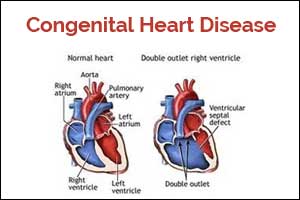- Home
- Editorial
- News
- Practice Guidelines
- Anesthesiology Guidelines
- Cancer Guidelines
- Cardiac Sciences Guidelines
- Critical Care Guidelines
- Dentistry Guidelines
- Dermatology Guidelines
- Diabetes and Endo Guidelines
- Diagnostics Guidelines
- ENT Guidelines
- Featured Practice Guidelines
- Gastroenterology Guidelines
- Geriatrics Guidelines
- Medicine Guidelines
- Nephrology Guidelines
- Neurosciences Guidelines
- Obs and Gynae Guidelines
- Ophthalmology Guidelines
- Orthopaedics Guidelines
- Paediatrics Guidelines
- Psychiatry Guidelines
- Pulmonology Guidelines
- Radiology Guidelines
- Surgery Guidelines
- Urology Guidelines
Congenital heart disease screening by pulse oximetry reduces infant deaths

Infant deaths from critical congenital heart disease (CCHD) decreased more than 33 percent in eight states that mandated screening for CCHD using a test called pulse oximetry. In addition, deaths from other or unspecified cardiac causes decreased by 21 percent.
Pulse oximetry is a simple bedside test to determine the amount of oxygen in a baby’s blood and the baby’s pulse rate. Low levels of oxygen in the blood can be a sign of a CCHD.
CCHD screening nationwide could save at least 120 babies each year, according to a new study published in the Journal of the American Medical Association. This study is the first look at the impact of state policies to either require or recommend screening of infants for CCHD at birth.
The study, Association of U.S. State Implementation of Newborn Screening Policies for Critical Congenital Heart Disease With Infant Cardiac Deaths, shows that states that required their hospitals to screen newborns with pulse oximetry saw the most significant decrease in infant deaths compared with states without screening policies. Voluntary policies or mandated policies not yet implemented were not associated with reductions in infant death rates. The encouraging news is that 47 states and D.C. now have mandatory screening policies in place and one additional state, California, requires screening be offered. These results serve as a reminder to hospitals across the country to remain vigilant in their screening for CCHD.
“More families are able to celebrate special milestones in a child’s life thanks to the early identification and treatment of heart defects,” said CDC Director Brenda Fitzgerald, M.D. “Screening newborns for critical congenital heart disease in every state, tribe, and territory will save lives and help babies thrive.”
About 1 in every 4 babies born with a congenital heart defect has CCHD and will need surgery or other procedures in the first year of life. In the U.S., about 7,200 babies born each year have one of seven CCHDs. Without screening by a pulse oximetry reading, some babies born with a congenital heart defect can appear healthy at first and be sent home with their families before their heart defect is detected.
CDC works to identify causes of congenital heart defects, find opportunities to prevent them, and improve the health of people living with these conditions.
Dr. Nidhi Bhatnagar, Chief Editor Specialty Dialogues, Radiology said that even though today fetal echo is suggested in only high-risk pregnancies, a mandatory screening would definitely be more effective in a triage-like a strategy once the baby is born.
Dr. Nidhi Bhatnagar
The author is M.D., Radio-diagnosis, Ph.D. ( Hony. Seoul) and Assistant Professor, General Secretary, Musculoskeletal Ultrasound Society, Dept of Radiologist and Ultrasonologist, She is a member Editorial Board, Radiology at Specialty Medical Dialogues.

Disclaimer: This site is primarily intended for healthcare professionals. Any content/information on this website does not replace the advice of medical and/or health professionals and should not be construed as medical/diagnostic advice/endorsement or prescription. Use of this site is subject to our terms of use, privacy policy, advertisement policy. © 2020 Minerva Medical Treatment Pvt Ltd